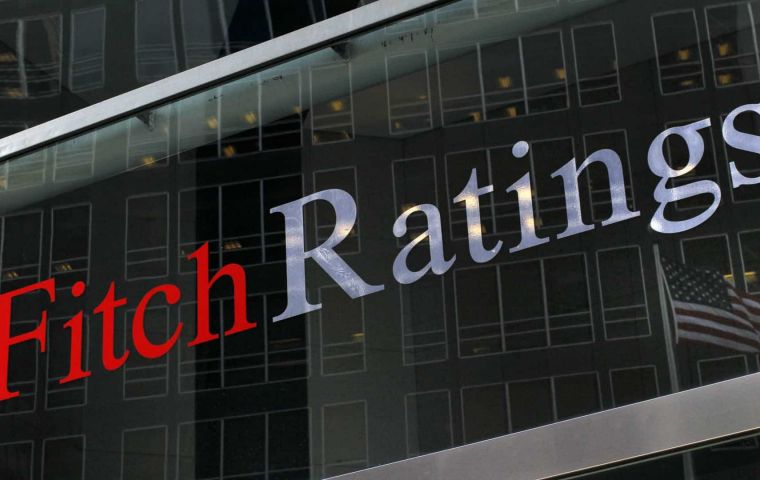MercoPress. South Atlantic News Agency
Fitch optimistic about Brazil, but fears fiscal sustainability is precarious
 The economy has received a strong boost from the demand and higher prices for commodities.
The economy has received a strong boost from the demand and higher prices for commodities. Credit rating agency Fitch improved its prospects for Brazil's primary deficit and overall debt in 2021 but also pointed out several uncertainties among which sustainability of the fiscal front, possible political instability, and the approval of the new food subsidies to help the vulnerable population.
The primary deficit in 2021 is expected to be below 1,5% of GDP, against the previous 2,4%, while foreign debt is estimated at 81,5% of GDP, down from 84,2% as anticipated before. In 2020 the overall debt closed at 88,8% of GDP.
“Fiscal prospects have improved because of a strong recovery of revenue and containment of expenses”, pointed out Fitch in its report. However, a stabilization of the public debt and reduction of reimbursements will demand a return to primary surpluses in the years ahead, plus the fact that uncertainties remain regarding the materialization of policies that will determine fiscal improvements next year.
Among the risks outlined by Fitch are the government's effort to advance with the program Help Brazil which should replace the Bolsa Familia to help vulnerable families in 2022, a crucial election year for president Jair Bolsonaro's reelection aspirations. But “it is not clear” how large the program is planned and how it will be financed.
Congress has approved the legal bases for the program, but that is all so far. In effect, the government has 90bn Reais pending creditor judgments which must be honored during 2022, and if the Help Brazil program is introduced, the government will not be able to comply given the capped expenditure. In that context “any tax reform which increases budget's deficit will weigh heavily on fiscal and debt consolidation prospects for next year.”
Besides 2022 is a presidential election year and as the date approaches uncertainty will increase, because both the election process and results can trigger volatility in domestic financial markets, harming investment, which will slow economic growth and forcing government financing costs up.
Fitch is keeping unchanged its growth estimates for Brazil in 2021 and 22, at 5% and 2% respectively. This is because the vaccination campaign is facilitating the recovery of the economy plus the fact that international commodities prices are strongly supporting agriculture and industrial production.
But on the not so bright side, the hydric situation, lack of rainfall is increasing growth risks; deceleration of the global economy; monetary policy, and presidential elections are big question marks for economic expansion in 2022.
Finally, the inflationary trend is expected to continue, as has been shown by the latest CPI reports, indicating that in September on a twelve-month basis it reached 10,05%, the highest in over a decade.




Top Comments
Disclaimer & comment rulesCommenting for this story is now closed.
If you have a Facebook account, become a fan and comment on our Facebook Page!